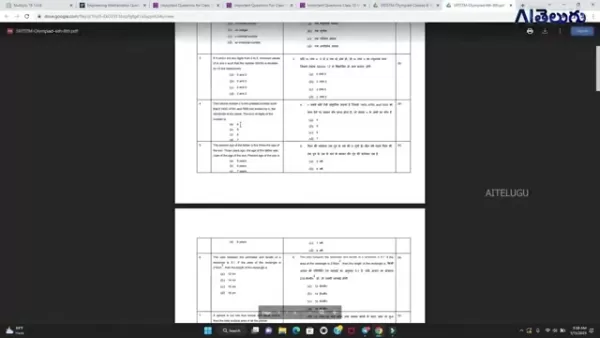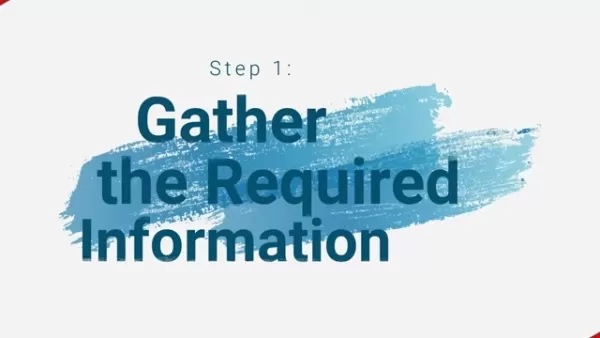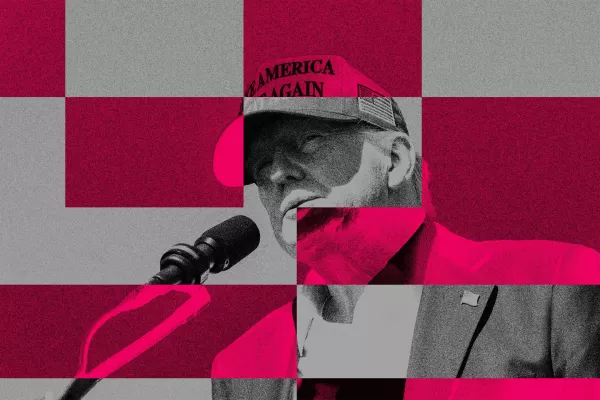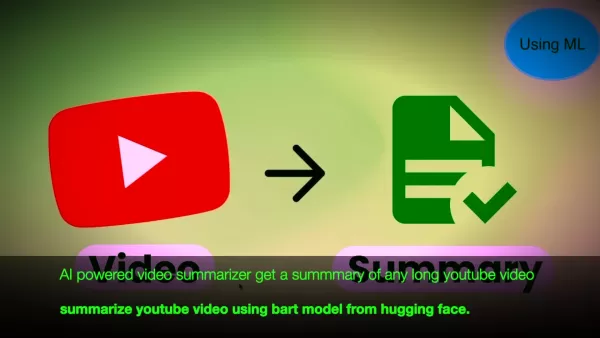AI Reshapes Legal and Education Sectors: Robot Lawyers and ChatGPT Restrictions
AI's Disruptive Impact on Law and Education: What You Need to Know
Artificial intelligence isn't just knocking on the doors of law firms and classrooms—it's kicking them wide open. From robot lawyers prepping for their courtroom debut to schools grappling with ChatGPT's double-edged potential, AI is forcing industries to adapt at breakneck speed. Let's break down what's happening and why it matters.
🤖 The Robot Lawyer Revolution
AI Takes the Stand

For the first time ever, an AI-powered "robot lawyer" is gearing up to argue a real court case—and it's happening next month. Developed by DoNotPay, this digital attorney won't physically appear in court but will feed arguments to its human client through an earpiece during a traffic violation hearing.
This isn't just about contesting parking tickets. The implications are massive:
- Democratizing Legal Help: Could make basic legal assistance affordable for millions
- 24/7 Availability: No more waiting for office hours
- Potential Pitfalls: Algorithmic bias, lack of human nuance, ethical gray areas
Legal experts are divided. Some hail it as overdue innovation; others warn it could undermine the justice system's human element. One thing's certain—this courtroom drama will be watched closely.
🎓 The ChatGPT School Ban Debate
NYC Draws First Blood

New York City public schools recently banned ChatGPT from all school devices, sparking a fiery debate about AI in education. The concern? Students might use it to:
- Generate essays effortlessly
- Solve math problems without understanding
- Bypass critical thinking entirely
But is banning the answer? Microsoft CEO Satya Nadella certainly doesn't think so—he's championing ChatGPT's potential to revolutionize fields from agriculture to education. The key question: Can we teach students to use AI responsibly rather than fear it?
The Educator's Dilemma
Pros Cons Instant homework help Risk of over-reliance Creative brainstorming aid Potential plagiarism issues Personalized learning Reduced writing practice
Many teachers argue the solution isn't prohibition—it's developing new assessment methods that value process over product.
🏭 IIT's Game-Changing 3D Printing Project
Where AI Meets Manufacturing
In a groundbreaking partnership, IIT Tirupati and Cyient DLM are merging AI with 3D printing to potentially transform manufacturing. The collaboration focuses on:
- Precision Enhancement: AI algorithms optimizing designs
- Waste Reduction: Smart material usage
- Education Synergy: Students gaining hands-on experience with cutting-edge tech
This initiative exemplifies how academia-industry partnerships can drive real-world innovation.
⚖️ The Ethical Tightrope
Navigating AI's Moral Maze

As AI penetrates sensitive sectors, tough questions emerge:
- Legal Sector: Can algorithms truly deliver justice without human compassion?
- Education: Does AI help or hinder genuine learning?
- Manufacturing: What happens to displaced workers?
The consensus? We need guardrails, not roadblocks—policies that encourage innovation while protecting fundamental rights.
🔮 What's Next?
The AI genie isn't going back in the bottle. As these developments show:
- Robot lawyers will likely handle routine cases first
- Schools must adapt curricula for the AI age
- 3D printing could become smarter and more accessible
The challenge? Harnessing AI's power without losing what makes us human. One thing's certain—the conversation is just beginning.
How do you think AI will reshape these fields? The debate continues on our forums.
Related article
 AI-Powered Cover Letters: Expert Guide for Journal Submissions
In today's competitive academic publishing environment, crafting an effective cover letter can make the crucial difference in your manuscript's acceptance. Discover how AI-powered tools like ChatGPT can streamline this essential task, helping you cre
AI-Powered Cover Letters: Expert Guide for Journal Submissions
In today's competitive academic publishing environment, crafting an effective cover letter can make the crucial difference in your manuscript's acceptance. Discover how AI-powered tools like ChatGPT can streamline this essential task, helping you cre
 US to Sanction Foreign Officials Over Social Media Regulations
US Takes Stand Against Global Digital Content Regulations
The State Department issued a sharp diplomatic rebuke this week targeting European digital governance policies, signaling escalating tensions over control of online platforms. Secretary Marco
US to Sanction Foreign Officials Over Social Media Regulations
US Takes Stand Against Global Digital Content Regulations
The State Department issued a sharp diplomatic rebuke this week targeting European digital governance policies, signaling escalating tensions over control of online platforms. Secretary Marco
 Ultimate Guide to AI-Powered YouTube Video Summarizers
In our information-rich digital landscape, AI-powered YouTube video summarizers have become indispensable for efficient content consumption. This in-depth guide explores how to build a sophisticated summarization tool using cutting-edge NLP technolog
Comments (2)
0/200
Ultimate Guide to AI-Powered YouTube Video Summarizers
In our information-rich digital landscape, AI-powered YouTube video summarizers have become indispensable for efficient content consumption. This in-depth guide explores how to build a sophisticated summarization tool using cutting-edge NLP technolog
Comments (2)
0/200
![SophiaJones]() SophiaJones
SophiaJones
 September 11, 2025 at 6:30:41 AM EDT
September 11, 2025 at 6:30:41 AM EDT
之前看到新聞說AI律師在法庭上被禁止使用了,這篇報導正好解釋背後的原因。其實我覺得AI在法律領域的角色該是輔助工具而不是取代律師,畢竟法律訴訟牽涉太多人性判斷了🤔


 0
0
![GaryRoberts]() GaryRoberts
GaryRoberts
 August 2, 2025 at 11:07:14 AM EDT
August 2, 2025 at 11:07:14 AM EDT
AI in courtrooms sounds wild! Imagine a robot lawyer arguing my case—hope it doesn’t glitch mid-trial 😅. Cool read, but makes me wonder if humans will still call the shots in law.


 0
0
AI's Disruptive Impact on Law and Education: What You Need to Know
Artificial intelligence isn't just knocking on the doors of law firms and classrooms—it's kicking them wide open. From robot lawyers prepping for their courtroom debut to schools grappling with ChatGPT's double-edged potential, AI is forcing industries to adapt at breakneck speed. Let's break down what's happening and why it matters.
🤖 The Robot Lawyer Revolution
AI Takes the Stand

For the first time ever, an AI-powered "robot lawyer" is gearing up to argue a real court case—and it's happening next month. Developed by DoNotPay, this digital attorney won't physically appear in court but will feed arguments to its human client through an earpiece during a traffic violation hearing.
This isn't just about contesting parking tickets. The implications are massive:
- Democratizing Legal Help: Could make basic legal assistance affordable for millions
- 24/7 Availability: No more waiting for office hours
- Potential Pitfalls: Algorithmic bias, lack of human nuance, ethical gray areas
Legal experts are divided. Some hail it as overdue innovation; others warn it could undermine the justice system's human element. One thing's certain—this courtroom drama will be watched closely.
🎓 The ChatGPT School Ban Debate
NYC Draws First Blood

New York City public schools recently banned ChatGPT from all school devices, sparking a fiery debate about AI in education. The concern? Students might use it to:
- Generate essays effortlessly
- Solve math problems without understanding
- Bypass critical thinking entirely
But is banning the answer? Microsoft CEO Satya Nadella certainly doesn't think so—he's championing ChatGPT's potential to revolutionize fields from agriculture to education. The key question: Can we teach students to use AI responsibly rather than fear it?
The Educator's Dilemma
| Pros | Cons |
|---|---|
| Instant homework help | Risk of over-reliance |
| Creative brainstorming aid | Potential plagiarism issues |
| Personalized learning | Reduced writing practice |
Many teachers argue the solution isn't prohibition—it's developing new assessment methods that value process over product.
🏭 IIT's Game-Changing 3D Printing Project
Where AI Meets Manufacturing
In a groundbreaking partnership, IIT Tirupati and Cyient DLM are merging AI with 3D printing to potentially transform manufacturing. The collaboration focuses on:
- Precision Enhancement: AI algorithms optimizing designs
- Waste Reduction: Smart material usage
- Education Synergy: Students gaining hands-on experience with cutting-edge tech
This initiative exemplifies how academia-industry partnerships can drive real-world innovation.
⚖️ The Ethical Tightrope
Navigating AI's Moral Maze

As AI penetrates sensitive sectors, tough questions emerge:
- Legal Sector: Can algorithms truly deliver justice without human compassion?
- Education: Does AI help or hinder genuine learning?
- Manufacturing: What happens to displaced workers?
The consensus? We need guardrails, not roadblocks—policies that encourage innovation while protecting fundamental rights.
🔮 What's Next?
The AI genie isn't going back in the bottle. As these developments show:
- Robot lawyers will likely handle routine cases first
- Schools must adapt curricula for the AI age
- 3D printing could become smarter and more accessible
The challenge? Harnessing AI's power without losing what makes us human. One thing's certain—the conversation is just beginning.
How do you think AI will reshape these fields? The debate continues on our forums.
 AI-Powered Cover Letters: Expert Guide for Journal Submissions
In today's competitive academic publishing environment, crafting an effective cover letter can make the crucial difference in your manuscript's acceptance. Discover how AI-powered tools like ChatGPT can streamline this essential task, helping you cre
AI-Powered Cover Letters: Expert Guide for Journal Submissions
In today's competitive academic publishing environment, crafting an effective cover letter can make the crucial difference in your manuscript's acceptance. Discover how AI-powered tools like ChatGPT can streamline this essential task, helping you cre
 US to Sanction Foreign Officials Over Social Media Regulations
US Takes Stand Against Global Digital Content Regulations
The State Department issued a sharp diplomatic rebuke this week targeting European digital governance policies, signaling escalating tensions over control of online platforms. Secretary Marco
US to Sanction Foreign Officials Over Social Media Regulations
US Takes Stand Against Global Digital Content Regulations
The State Department issued a sharp diplomatic rebuke this week targeting European digital governance policies, signaling escalating tensions over control of online platforms. Secretary Marco
 Ultimate Guide to AI-Powered YouTube Video Summarizers
In our information-rich digital landscape, AI-powered YouTube video summarizers have become indispensable for efficient content consumption. This in-depth guide explores how to build a sophisticated summarization tool using cutting-edge NLP technolog
Ultimate Guide to AI-Powered YouTube Video Summarizers
In our information-rich digital landscape, AI-powered YouTube video summarizers have become indispensable for efficient content consumption. This in-depth guide explores how to build a sophisticated summarization tool using cutting-edge NLP technolog
 September 11, 2025 at 6:30:41 AM EDT
September 11, 2025 at 6:30:41 AM EDT
之前看到新聞說AI律師在法庭上被禁止使用了,這篇報導正好解釋背後的原因。其實我覺得AI在法律領域的角色該是輔助工具而不是取代律師,畢竟法律訴訟牽涉太多人性判斷了🤔


 0
0
 August 2, 2025 at 11:07:14 AM EDT
August 2, 2025 at 11:07:14 AM EDT
AI in courtrooms sounds wild! Imagine a robot lawyer arguing my case—hope it doesn’t glitch mid-trial 😅. Cool read, but makes me wonder if humans will still call the shots in law.


 0
0





























